
Pessimum
Definition: the least favorable environmental condition under which an organism can survive
Pessimum is admittedly scientific jargon, but sometimes you need a boldly scientific word to give your proclamations that soupçon of gravitas when you aren't doing so well. The word comes to English straight from Latin. If you need a fancy adjective for "worst" to go with this noun, you can use pessimal.
Suppose that the British Government, instead of being anxious, as they are, to vomit forth the Lazaroni of Ireland—that wretched population who are reduced to the minimum, and the pessimum too, of human existence—to the potato, the whole potato, and nothing but the potato—was desirous of detaining them in Ireland … but would it be “inhuman” … to bring a number of these miserable beings to this country!
—Register of Debates in Congress, 10 Jan. 1828
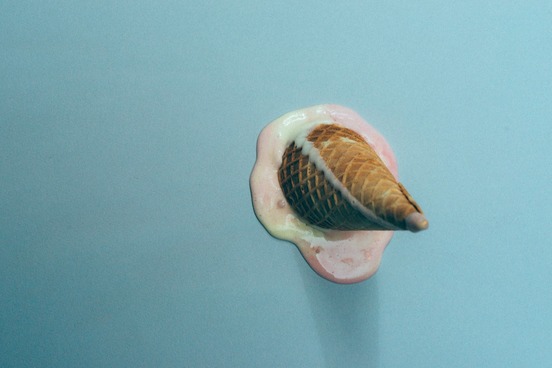
Catastrophe
Definition: utter failure
One of the things that is interesting about the word catastrophe (aside from the fact that it is a lovely-sounding word) is that it has gone from referring to something that is not so bad to describing something terrible, and, in recent years, returning to referring to something that is not so bad.
The original meaning of catastrophe, beginning in the 16th century, was "the final action that completes the unraveling of the plot in a play, especially a tragedy." By the early 17th century the word had taken on a somewhat more momentous meaning, and would often be employed when describing some great calamity. More recently the word has taken on a broadened meaning, and may be found referring to fiascos of varying levels of direness, such as unsuccessful dinner parties, trips with one's extended family, and unsuccessful attempts to fix the bathroom sink.
Thus hauing boldly importuned your assistance, and tediously molested your eares with circumstances, leauing now at length to abuse your friendly pacience … wishing to your Honor increase of Nobilitie, with a moste happie lyfe: and after the Catastrophe of this worldly Comedie, (wherein you play a statelye parte) the gladsome ioyes of the euerlasting Seignorie.
—George Turberuile, The Heroycall Epistles of the Learned Poet Publius Ouidius Naso (translation), 1567
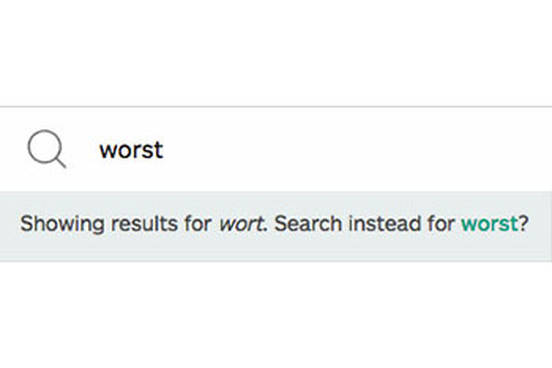
Worstest
Definition: substandard variant of worst
We do not provide an entry for worstest (or worster) due to the fact that this word is considered to be an improper variant of the superlative worst, and is little used and widely shunned. But given that there is no situation so bad that it cannot be made more so by having someone correct you on your language use we will offer some way of working this word into your conversation. The few citations we have found for worstest tend to come from the 19th century, and are typically found when a writer wishes to replicate an ostensibly dialectal form of speech.
….and, even now, should the worst come to the worstest, dang my pulpit if I would not shoulder my musket, and wade up to the conjunction of my trowses’ legs in blood, sooner than see one inch of the soil that gave me birth and freedom, violated by an invading foe!
—Dow Jr. (pseud.), Short Patent Sermons, 1841The doctor seed un at the worstest, I ‘sure ye, and said he were quite in a pranksom, his face was all on a work so.
—Robert Pearse Gillies, Tales of a Voyager to the Arctic Ocean, 1829First of all, said he, I’ll tell you what’s afore you, my son, and that is, if you talk in that are loose way to Britain, about sacred things and persons, you won’t be admitted into no decent man’s house at all, and I wouldn’t admit you into mine if I didn’t know your tongue was the worstest part of you, and that it neither spoke for the head or the heart, but jist for itself.
—Thomas Chandler Haliburton, The Clockmaker, or The Sayings and Doings of Samuel Slick of Slickville, 1841

The Limit
Definition: a very annoying or upsetting person or thing
Declaring that something is simply the limit has a pleasingly old-fashioned ring to it (and our usage note for this entry specifies that it is both 'old-fashioned' and 'informal'). The use of limit to refer to the person who upsets the apple cart appears to have begun in the late 19th or early 20th century. If you need to add a touch of emphasis to this phrase you may refer to someone or something as the frozen limit, which the Oxford English Dictionary defines rather poetically as “the ne plus ultra of what is objectionable or unendurable."
”Licentiousness is bad,” said he, “legalized licentiousness is worse, but consecrated licentiousness is the very limit.”
—Kansas City Star (Kansas City, MO), 25 Jan. 1900
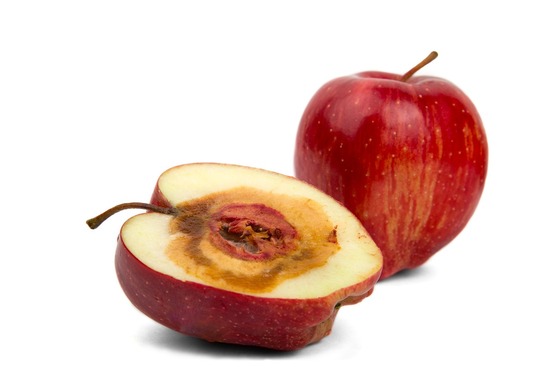
Putid
Definition: rotten, worthless
Sometimes, when you need to say that something sucks but would like to avoid that particular word, it feels oddly satisfying to rely on a disyllabic word that begins with a voiceless bilabial plosive and ends with an alveolar stop. Like, for instance, putid.
Aside from the fact that putid is a fine short word whose sound matches its meaning, it has the additional benefit of a suitable etymology, coming from the Latin putēre ("to stink, be rotten").
….and the truth is (all things considered) it is a most putid and irrationall thing, once to conceive, that any such thing was ever intended by our present Parliament in the imposing therof.
—John Price, A Moderate Reply to the Citie-Remonstrance, 1646

Maleficent
Definition: productive of harm or evil
Maleficent is not just the name of a character from a Disney film (she was the baddie in the 1959 Sleeping Beauty); it is also an adjective that has been around for a while, in use in English for almost 400 years. The Latin word malus (meaning "bad") has given rise to a wide range of English words dealing with objectionable conduct and results. Many of these, such as malcontent, are somewhat common. Others, such as maleficiate ("placed under an evil spell; especially: made impotent by sorcery") and maledicent ("addicted to speaking evil"), are less well known.
If he must be punished, saith Seneca, whosoever is of an evil and maleficent nature, every one must be punished.
—Hugo Grotius, Of the Lawe of Warre and Peace, 1655
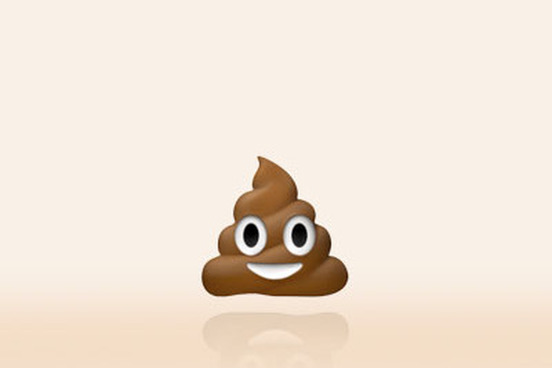
Excrementitious
Definition: of or relating to excrement: concerned with or caused by dung
It may not be readily apparent how a word defined in part as "concerned with or caused by dung" stands in as a substitute for "that sucks." But we speakers of the English language have long used words relating to excrement in highly figurative ways. Excrementitious has, over the years, provided us with a number of fine examples of such figurative use, as seen in the splenetic passage quoted below.
It would be also tedious and troublesome to enumerate the odious railing names and Epithites of Cham, Ismael, Shimei, Rabsheka, apostate; broadfac'd lie, brasenfac'd lie, putid lie, egregious lie, with such like excrementitious stuffe, that hath drop't from his venemous pen; and wherewith his Book is full fraught, as if composed at Bedlam or Billings-gate, unbeseeming any sober Christian, much more a Pastor of a congregation.
—Toby Allein, Truths Manifest Revived, 1659
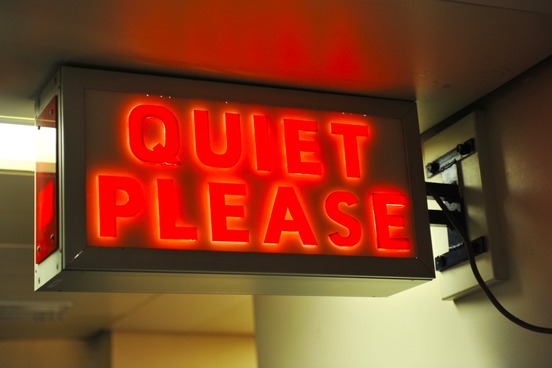
Nefandous
Definition: unfit to be spoken of
Some things are so odious that they should not be mentioned. How, then, are we to refer to them? One workaround is to simply call them nefandous, a word which may be traced back to the Latin roots of ne- ("not") and fari ("to speak"). Occasional writers have used the noun form of the word (as did Thomas Stephens, in a sermon published in 1660, "to avoid this nefandum, this unheard of wickedness, a less mischief is imbraced"), but it has not enjoyed the same success as the adjective nefandous, and is not recorded in English dictionaries.
The prophane superstitions, the abhominable Idolatryes, the filthy nefandous wickednesse of their lifes, did stink in Gods nostriles, did call downe for vengeance, for reformation.
—Benjamin Rudyerd, Five Speeches in the High and Honourable Court of Parliament, 1641





